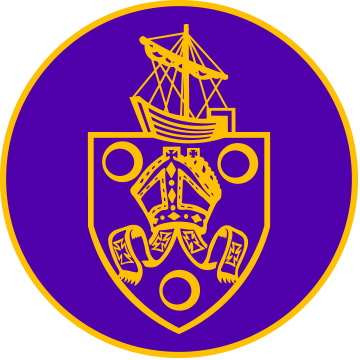English - Writing
Writing
“You can make anything by writing.”
C. S. Lewis
Every child in St Nicolas is a writer. Children learn to write confidently and clearly for many different audiences and purposes. Written communication skills are rehearsed, applied and embedded throughout every area of our curriculum enabling children to express their knowledge, thoughts and opinions. We believe in fostering an understanding that writing is an on-going process that can always be enhanced or developed. This in turn, reinforces the school’s commitment to a growth mind-set.
Our aims are to enable children to:
- Write every day, across all areas of the curriculum
- Immerse themselves in language through oracy and high-quality, engaging texts, giving them the experience, skills and inspiration to write across a range of styles
- Witness good writing modelled to them by skilled practitioners, explaining and reflecting on the choices they have made
- Learn the mechanics of good writing, spelling and grammar in both inclusive and discreet sessions
- Reflect, develop and improve their writing skills through regular, rapid and specific feedback
- Develop the confidence to revise, edit and improve their own writing
- Leave St Nicolas at the end of Year 6 with an independent ability to communicate effectively through writing
What you'll see:
- Children producing regular extended pieces of writing throughout the school day.
- A school environment that celebrates writing, both by sharing our children’s work and that of the published authors we study.
- Children who take pride in their written work and staff who model and promote this care and attention for presentation.
- Language rich environments to support, embolden and inspire young writers to make informed choices about the vocabulary they use in their writing.
- High quality texts being used as a basis to inspire, demonstrate and initiate writing.
- A range of age-appropriate resources to support pupils with their language and vocabulary choices and spellings when writing.
- An applied understanding of phonics within the children’s work supported by age-appropriate teaching resources and learning environments.
- The same high expectations of writing outcomes being applied throughout all areas of the curriculum, not just in English lessons.
- Children editing and improving their writing, independently or in collaboration with staff or peers.
- Staff working alongside pupils to review their writing, allowing time for pupils to respond to marking and feedback.
- Explicit teaching and modelling of the technical skills of writing, for example punctuation, grammar and sentence construction.
- Children producing imaginative pieces of writing inspired by creative ideas in a range of different styles and genres. allowing for pupil to experiment with ideas and styles.
- Children planning their writing with peers, talking about the right structure and drawing on high quality texts to make planning decisions.
- A clear progression in writing skills across the school.
What you'll hear:
- Children talking about what they are writing, rehearsing sentences orally and confidently reading it aloud.
- Phonics knowledge being used by children to spell unfamiliar words.
- Children reflecting on and revising their own writing, individually or with peers.
- Staff talking through examples of written texts that demonstrate the writing skills, knowledge and behaviours we are promoting across the school.
- Specific, constructive and rapid feedback being shared by teachers and children.
How we teach writing
Phonics
Phonics means the sounds that letters, and groups of letters, make. We teach phonics in our school using a teaching programme called Rocket Phonics'. The very first stage of phonics teaching begins in Reception and continues throughout Years 1 and 2.
From Reception, children are encouraged to use and reflect on their phonetic knowledge when writing. Support materials including sound sheets and phonics friezes are available to all pupils. Children are taught how to split up words into their sounds to aid with their writing, this is called segmenting. These skills are developed, rehearsed and refined throughout the Rocket Phonics programme and applied when writing throughout the curriculum.
From Year 3, phonics sessions are continued to be used to support learners who find segmenting when writing challenging and require additional support. Phonics support materials can also be found in all year groups for pupils who require them.
